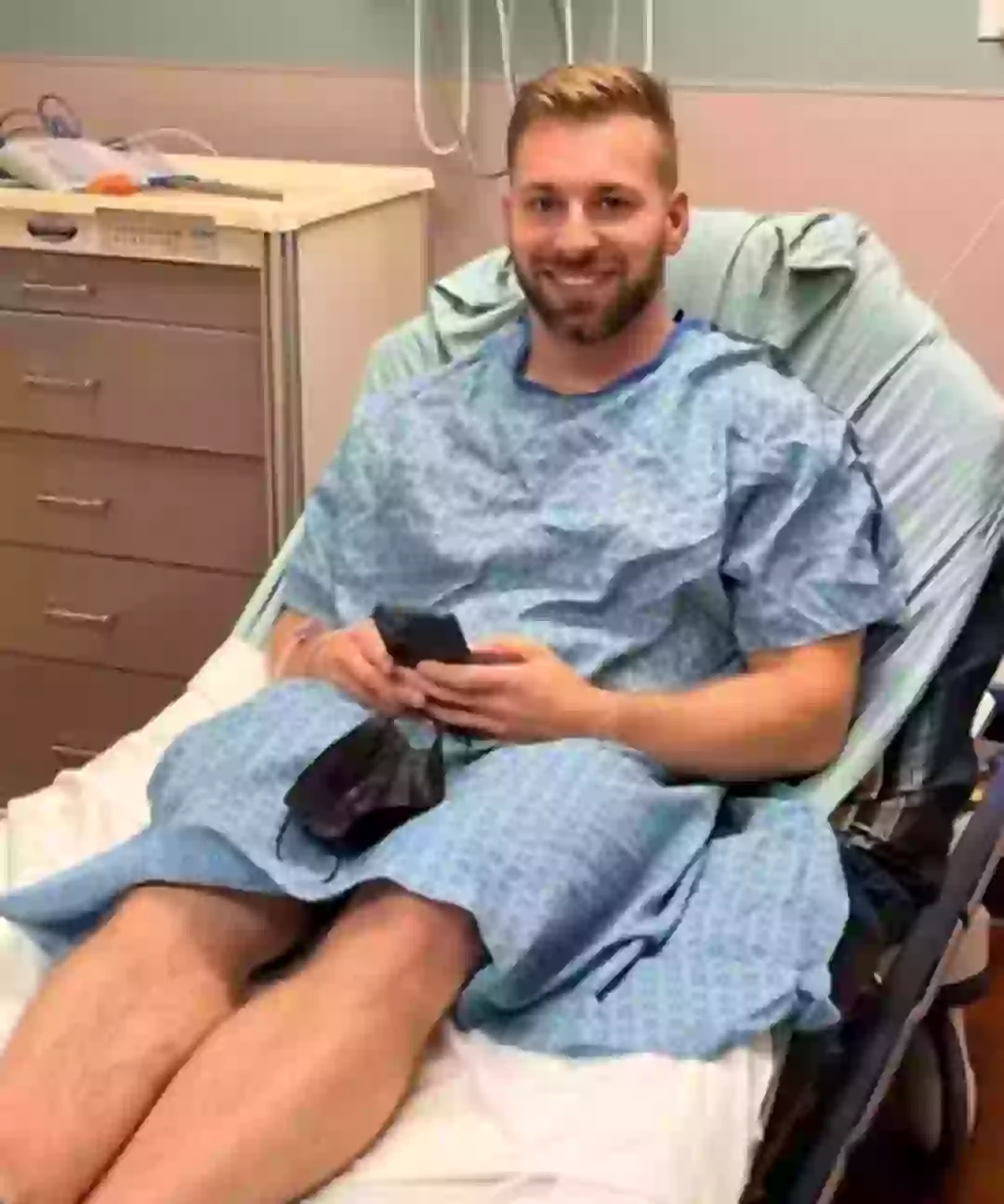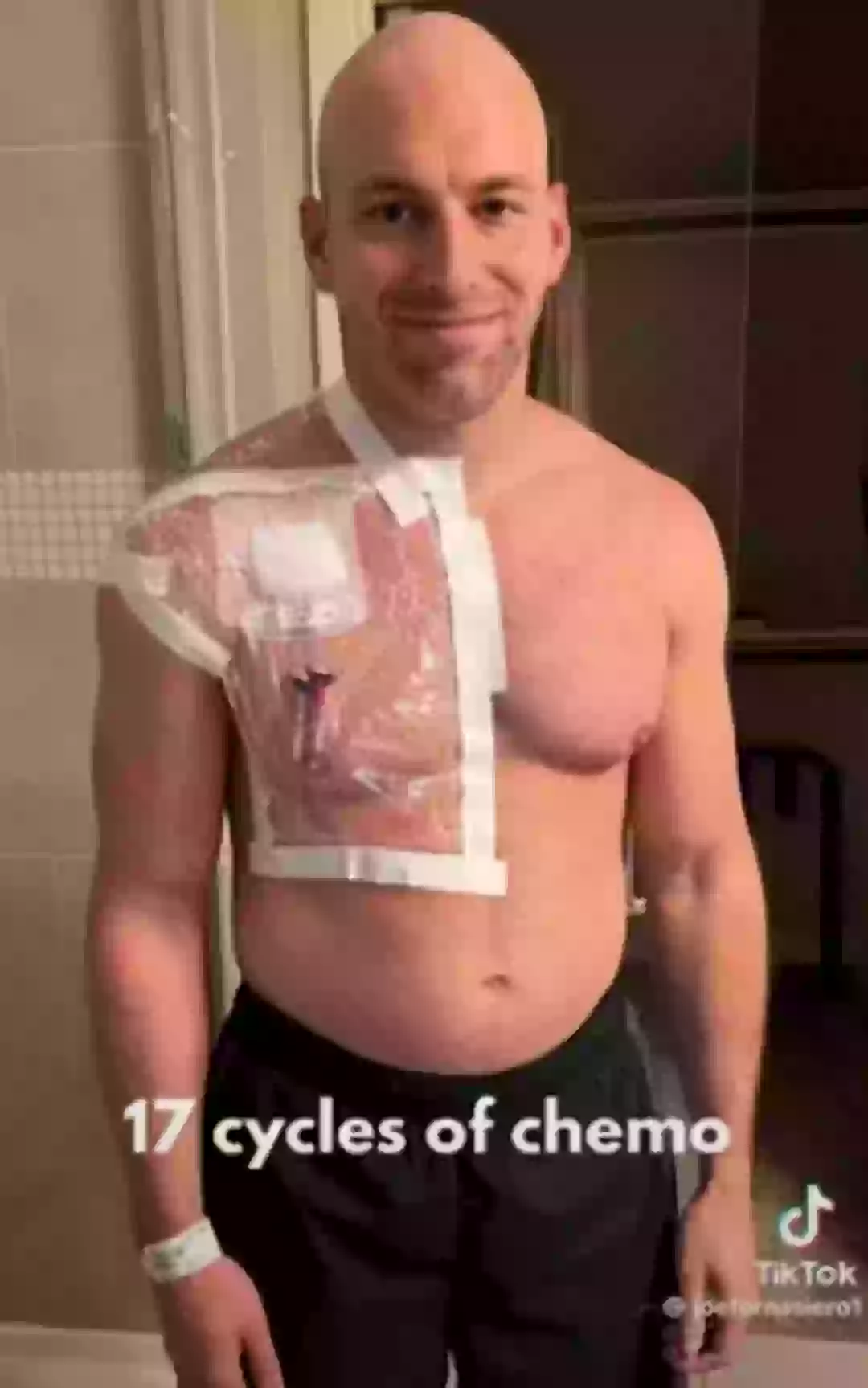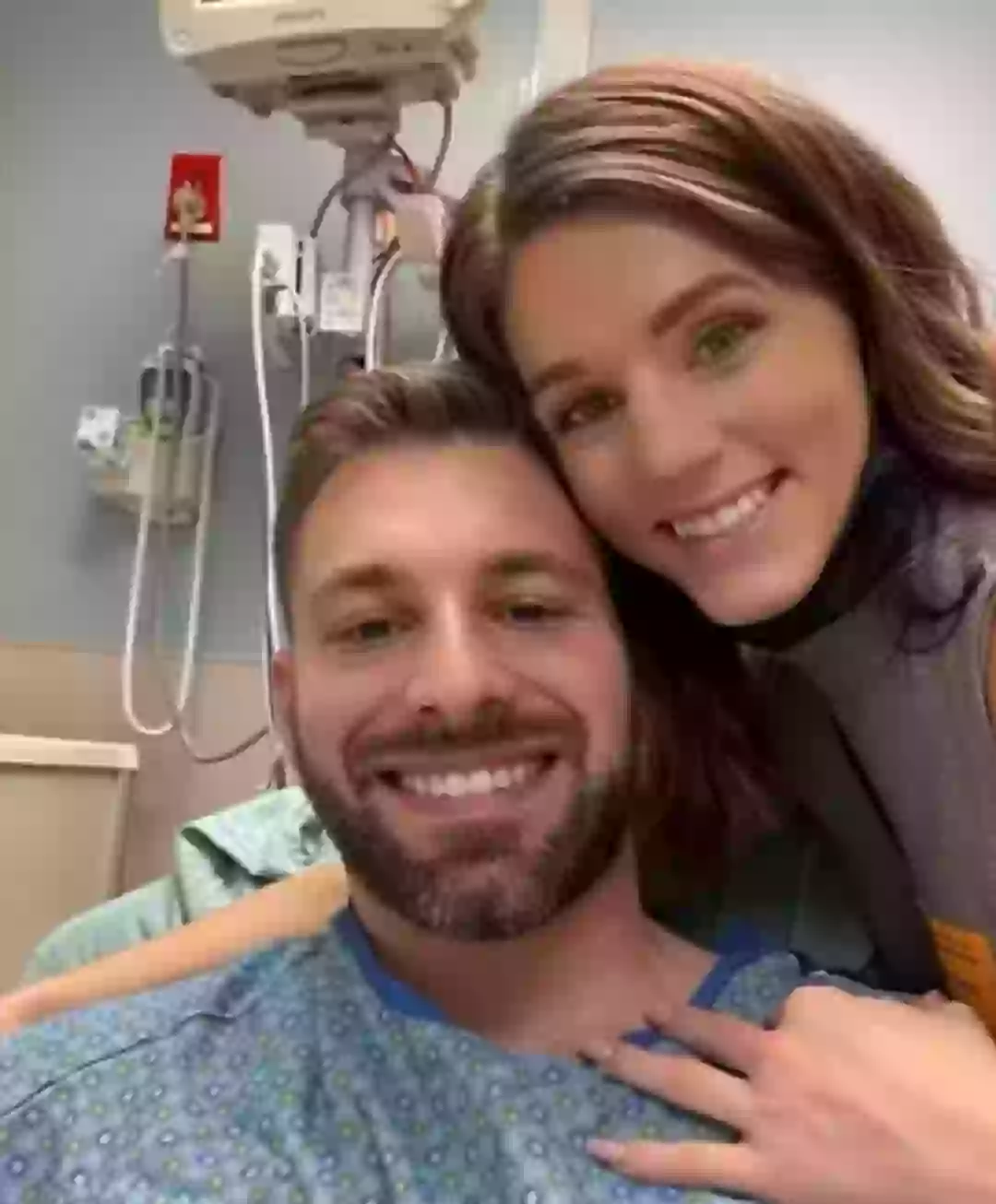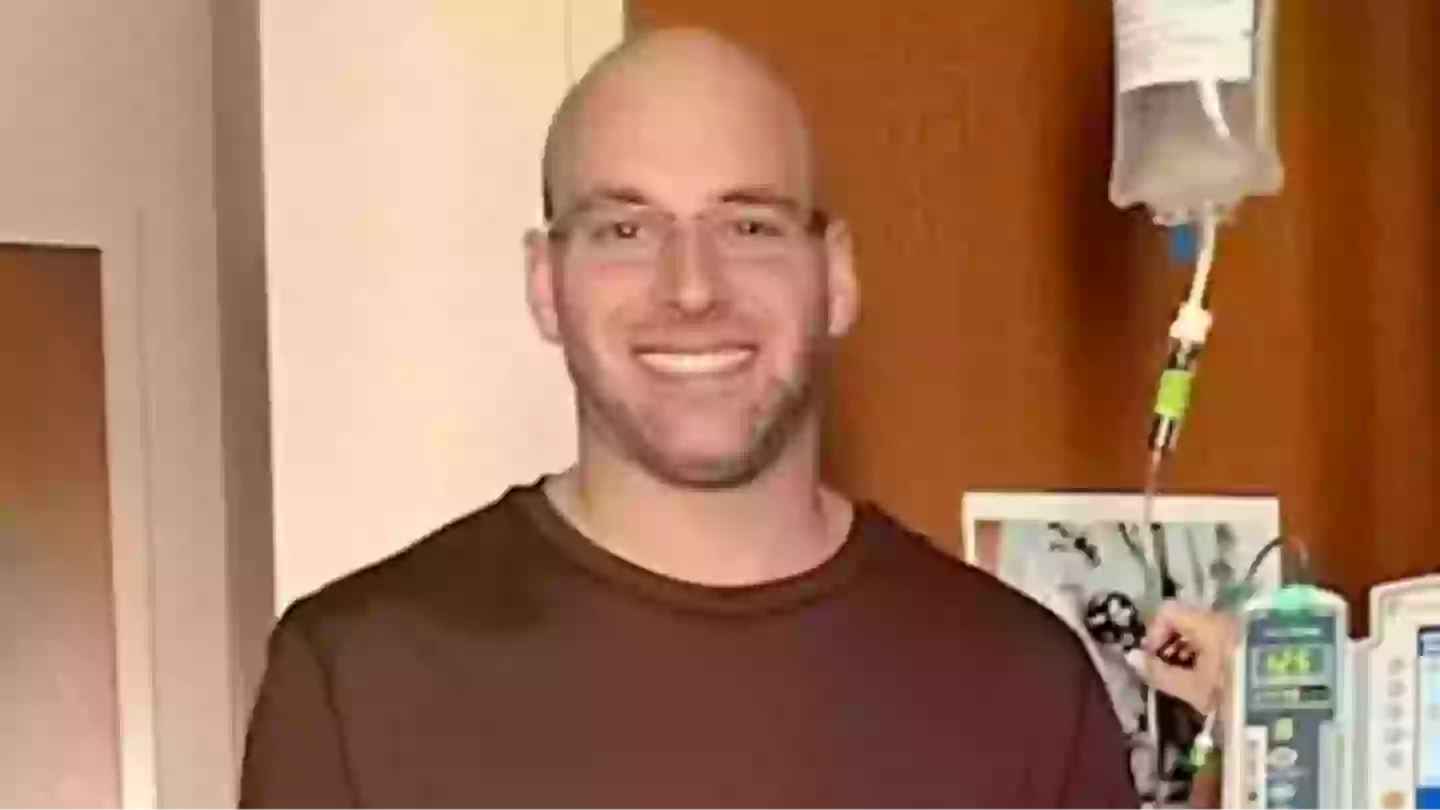A Michigan fitness enthusiast has shared the seemingly ordinary symptoms that ultimately led to his devastating cancer diagnosis.
Joe Fornasiero, a dedicated health and fitness advocate from Brighton, Michigan, had maintained an active, healthy lifestyle for over twenty years before receiving a diagnosis of Desmoplastic Small Round Cell Tumor (DSRCT), an exceptionally rare form of cancer.

This particular cancer is extraordinarily uncommon, with the US Department of Health and Human Services reporting that fewer than 1,000 Americans have received this diagnosis.
Speaking through The Patient Story’s YouTube platform, Joe aims to raise awareness about the subtle warning signs he experienced and document his challenging treatment journey.
Joe explained that his initial symptoms were deceptively mild: moderate abdominal discomfort in his lower left side and persistent tiredness.
The discovery came unexpectedly during a hernia repair procedure in February 2022, addressing a weightlifting injury from a decade earlier, when medical professionals noticed something unusual.
Doctors identified what they described as a ‘small benign growth,’ reassuring Joe that it wasn’t cause for concern.
Nevertheless, he continued experiencing ‘intermittent sharp pain’ in that region for several weeks afterward, rating the discomfort as a ‘six out of ten’ on the pain scale.

When he sought emergency medical care, a CT scan revealed alarming results that changed everything dramatically.
A visibly shaken physician delivered devastating news: multiple tumor masses had been discovered throughout his abdominal cavity and pelvic region.
“I had entered that hospital as what I considered the healthiest individual I knew. I had maintained proper nutrition for years and exercised consistently for more than twenty years. Yet there I was, leaving with a possible cancer diagnosis,” Joe remembered. “The experience felt almost surreal.”
“I never anticipated this could affect me, but I’ve come to understand that cancer affects people indiscriminately.”
While his cancer diagnosis was eventually confirmed, medical professionals struggled to identify the primary source, with some initially suspecting a form of lung cancer.
During the wait for biopsy results in August 2022, Joe consulted with leading medical institutions worldwide, seeking answers without success.
When DSRCT was finally confirmed, Joe faced the disturbing reality that some physicians admitted they lacked experience treating his specific condition.
Faced with uncertainty, Joe began an intensive chemotherapy protocol, which he tolerated relatively well.
“I believe my positive response was due to the years of exercise and proper nutrition leading up to my cancer treatment,” he noted.

Joe then underwent two demanding ten-hour surgical procedures targeting his abdomen and chest extending to his pelvis, during which surgeons removed lymph nodes, portions of his diaphragm, and his spleen through a twelve-inch incision.
Despite doctors’ assessment that Joe had achieved remission following these procedures, his instinctive concerns proved justified, leading him to pursue additional chemotherapy treatment.
“Those extended treatment days, spanning Monday through Friday, were particularly draining from an energy perspective,” he recounted.
Radiation therapy followed during his most physically compromised period, when even consuming small portions would trigger severe coughing episodes resulting in vomiting.
“You begin questioning decisions like, ‘why am I subjecting myself to this?’ I feel so terrible that I’m unsure if I want to continue. However, I believe much of it depends on how you mentally reframe your perspective.”
His Apple watch later alerted him to an elevated heart rate, which medical testing confirmed was a 20mm cardiac blood clot accompanied by signs of congestive heart failure.
Daily abdominal injections of blood thinning medication provided temporary relief, but the cancer subsequently spread to his neck area.

“My most challenging moments involve imagining myself on my deathbed, having to bid farewell to my loved ones—that emotional burden is overwhelming,” Joe shared.
Offering guidance to others facing similar circumstances, he concluded: “With any serious medical diagnosis, statistics exist that may appear unfavorable, but there are always exceptional cases.
“The crucial element is ensuring you’re doing everything possible, both mentally and physically, to maximize your chances of achieving the best possible outcome.”

Individuals affected by these concerns who seek confidential support can contact the American Cancer Society at 1-800-227-2345 or through their live chat service, which operates continuously throughout the year.

